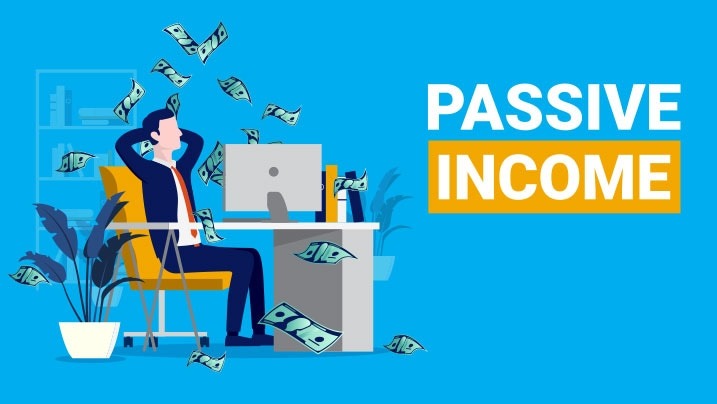The decision to buy the house with money was excruciating because we didn't need a nicer house. It also meant that we would no longer be technically financially independent, because our passive income would no longer cover all our living expenses.
However, driven by my desire to give my family a better life, I decided to take the risk. Over the next six months, life became stressful as cash flows tightened.
 I had broken one of my 30/30/30 home buying rules, in particular the one that guarantees that 10% of the property value remains in cash. I swear I will never make that mistake again.
Despite a difficult period, I came out of it stronger. After writing about the negative points of my decision, I now want to think about the positive aspects of earning less passive income. Overall, ironically, less passive income has improved my life. It made me more satisfied as a father and more satisfied as a man looking for meaning.
The best things to earn a less passive income
I had broken one of my 30/30/30 home buying rules, in particular the one that guarantees that 10% of the property value remains in cash. I swear I will never make that mistake again.
Despite a difficult period, I came out of it stronger. After writing about the negative points of my decision, I now want to think about the positive aspects of earning less passive income. Overall, ironically, less passive income has improved my life. It made me more satisfied as a father and more satisfied as a man looking for meaning.
The best things to earn a less passive income
 Here are the top five things you can do to earn a less passive income, followed by some deep-rooted psychological reasons why I decided to end my journey to financial independence.
1) paying less taxes is better
This year, I spent about six hours doing my taxes — a tedious and time-consuming task. One of the biggest inconveniences is the entry of all K-1 investments into Private Funds. However, as I manage my own taxes, I see firsthand how much I pay in taxes each year and I take strategic steps to optimize my tax liability and plan for the future.
With about $150,000 less in passive income, I expect to pay about $35,000 less in federal and California taxes next year. This tax reduction is satisfactory considering the six-figure sum that I already pay each year in property and income taxes.
Everyone has a threshold for the amount of taxes they deem acceptable each year to support our country. Some will discover this threshold, while others may never earn enough to reach it. Some even agree not to pay income tax.
A better tax balance sheet that I like to pay
Fortunately or unfortunately, I exceeded the amount of taxes that I like to pay. I tolerated the discomfort because today it costs more than $300,000 to afford a middle-class lifestyle for a family of four in San Francisco. However, this $150,000 decrease in passive income serves as a welcome tax adjustment that provides a sense of relief.
In my opinion, the ideal income can reach $200,000 per person or $400,000 per couple. At that income level, most of your income falls into the 24% marginal tax bracket, which I think is reasonable. If you can live with less, then even better. The federal marginal tax bracket of 32% is quite a leap.
2) a healthy return to budgeting and saving
For years, I didn't prioritize budgeting and frugality. It became an afterthought when I constantly paid myself by first setting aside a certain percentage to save and invest, and then freely spending the rest. However, with $150,000 less in passive income, I was forced to reassess our household budget and make the necessary changes.
During the examination, I realized that we had become careless with some expenses. For example, I was charged $9.99 a month for Apple TV for 18 months without watching a single Minute—a fee that I immediately eliminated. Similarly, we discovered a monthly fee of $150 for a Subscription to a Massage application, which we quickly canceled after exhausting the remaining credits. These sneaky expenses!
The need to be more frugal prompted my wife and I to discuss our discretionary spending. As a result, we have reduced food delivery orders and increased homemade meals, resulting in weight loss and better health for us and our children.
3) reduces the chances of raising spoiled and eligible children
Financial independence allows flexibility and freedom, which can be beneficial, but also carries risks in raising children. Without careful guidance, children can develop a sense of entitlement and believe that life is going smoothly due to their parents' financial stability.
Here are the top five things you can do to earn a less passive income, followed by some deep-rooted psychological reasons why I decided to end my journey to financial independence.
1) paying less taxes is better
This year, I spent about six hours doing my taxes — a tedious and time-consuming task. One of the biggest inconveniences is the entry of all K-1 investments into Private Funds. However, as I manage my own taxes, I see firsthand how much I pay in taxes each year and I take strategic steps to optimize my tax liability and plan for the future.
With about $150,000 less in passive income, I expect to pay about $35,000 less in federal and California taxes next year. This tax reduction is satisfactory considering the six-figure sum that I already pay each year in property and income taxes.
Everyone has a threshold for the amount of taxes they deem acceptable each year to support our country. Some will discover this threshold, while others may never earn enough to reach it. Some even agree not to pay income tax.
A better tax balance sheet that I like to pay
Fortunately or unfortunately, I exceeded the amount of taxes that I like to pay. I tolerated the discomfort because today it costs more than $300,000 to afford a middle-class lifestyle for a family of four in San Francisco. However, this $150,000 decrease in passive income serves as a welcome tax adjustment that provides a sense of relief.
In my opinion, the ideal income can reach $200,000 per person or $400,000 per couple. At that income level, most of your income falls into the 24% marginal tax bracket, which I think is reasonable. If you can live with less, then even better. The federal marginal tax bracket of 32% is quite a leap.
2) a healthy return to budgeting and saving
For years, I didn't prioritize budgeting and frugality. It became an afterthought when I constantly paid myself by first setting aside a certain percentage to save and invest, and then freely spending the rest. However, with $150,000 less in passive income, I was forced to reassess our household budget and make the necessary changes.
During the examination, I realized that we had become careless with some expenses. For example, I was charged $9.99 a month for Apple TV for 18 months without watching a single Minute—a fee that I immediately eliminated. Similarly, we discovered a monthly fee of $150 for a Subscription to a Massage application, which we quickly canceled after exhausting the remaining credits. These sneaky expenses!
The need to be more frugal prompted my wife and I to discuss our discretionary spending. As a result, we have reduced food delivery orders and increased homemade meals, resulting in weight loss and better health for us and our children.
3) reduces the chances of raising spoiled and eligible children
Financial independence allows flexibility and freedom, which can be beneficial, but also carries risks in raising children. Without careful guidance, children can develop a sense of entitlement and believe that life is going smoothly due to their parents' financial stability.
 To action this, we engaged in household chores such as gardening and landscaping and showed our children the value of manual labor. When you see mom and Dad weeding and hauling big bags of rocks and mulch, you can't help but join us. The same goes for cleaning our house, washing our car and general maintenance around the house.
Children need to witness their parents' Commitment to work to understand the importance of diligence and perseverance. It is not enough to drive them to school; every parent should get involved in a meaningful way to set a positive example.
To action this, we engaged in household chores such as gardening and landscaping and showed our children the value of manual labor. When you see mom and Dad weeding and hauling big bags of rocks and mulch, you can't help but join us. The same goes for cleaning our house, washing our car and general maintenance around the house.
Children need to witness their parents' Commitment to work to understand the importance of diligence and perseverance. It is not enough to drive them to school; every parent should get involved in a meaningful way to set a positive example.
 I had broken one of my 30/30/30 home buying rules, in particular the one that guarantees that 10% of the property value remains in cash. I swear I will never make that mistake again.
Despite a difficult period, I came out of it stronger. After writing about the negative points of my decision, I now want to think about the positive aspects of earning less passive income. Overall, ironically, less passive income has improved my life. It made me more satisfied as a father and more satisfied as a man looking for meaning.
The best things to earn a less passive income
I had broken one of my 30/30/30 home buying rules, in particular the one that guarantees that 10% of the property value remains in cash. I swear I will never make that mistake again.
Despite a difficult period, I came out of it stronger. After writing about the negative points of my decision, I now want to think about the positive aspects of earning less passive income. Overall, ironically, less passive income has improved my life. It made me more satisfied as a father and more satisfied as a man looking for meaning.
The best things to earn a less passive income
 Here are the top five things you can do to earn a less passive income, followed by some deep-rooted psychological reasons why I decided to end my journey to financial independence.
1) paying less taxes is better
This year, I spent about six hours doing my taxes — a tedious and time-consuming task. One of the biggest inconveniences is the entry of all K-1 investments into Private Funds. However, as I manage my own taxes, I see firsthand how much I pay in taxes each year and I take strategic steps to optimize my tax liability and plan for the future.
With about $150,000 less in passive income, I expect to pay about $35,000 less in federal and California taxes next year. This tax reduction is satisfactory considering the six-figure sum that I already pay each year in property and income taxes.
Everyone has a threshold for the amount of taxes they deem acceptable each year to support our country. Some will discover this threshold, while others may never earn enough to reach it. Some even agree not to pay income tax.
A better tax balance sheet that I like to pay
Fortunately or unfortunately, I exceeded the amount of taxes that I like to pay. I tolerated the discomfort because today it costs more than $300,000 to afford a middle-class lifestyle for a family of four in San Francisco. However, this $150,000 decrease in passive income serves as a welcome tax adjustment that provides a sense of relief.
In my opinion, the ideal income can reach $200,000 per person or $400,000 per couple. At that income level, most of your income falls into the 24% marginal tax bracket, which I think is reasonable. If you can live with less, then even better. The federal marginal tax bracket of 32% is quite a leap.
2) a healthy return to budgeting and saving
For years, I didn't prioritize budgeting and frugality. It became an afterthought when I constantly paid myself by first setting aside a certain percentage to save and invest, and then freely spending the rest. However, with $150,000 less in passive income, I was forced to reassess our household budget and make the necessary changes.
During the examination, I realized that we had become careless with some expenses. For example, I was charged $9.99 a month for Apple TV for 18 months without watching a single Minute—a fee that I immediately eliminated. Similarly, we discovered a monthly fee of $150 for a Subscription to a Massage application, which we quickly canceled after exhausting the remaining credits. These sneaky expenses!
The need to be more frugal prompted my wife and I to discuss our discretionary spending. As a result, we have reduced food delivery orders and increased homemade meals, resulting in weight loss and better health for us and our children.
3) reduces the chances of raising spoiled and eligible children
Financial independence allows flexibility and freedom, which can be beneficial, but also carries risks in raising children. Without careful guidance, children can develop a sense of entitlement and believe that life is going smoothly due to their parents' financial stability.
Here are the top five things you can do to earn a less passive income, followed by some deep-rooted psychological reasons why I decided to end my journey to financial independence.
1) paying less taxes is better
This year, I spent about six hours doing my taxes — a tedious and time-consuming task. One of the biggest inconveniences is the entry of all K-1 investments into Private Funds. However, as I manage my own taxes, I see firsthand how much I pay in taxes each year and I take strategic steps to optimize my tax liability and plan for the future.
With about $150,000 less in passive income, I expect to pay about $35,000 less in federal and California taxes next year. This tax reduction is satisfactory considering the six-figure sum that I already pay each year in property and income taxes.
Everyone has a threshold for the amount of taxes they deem acceptable each year to support our country. Some will discover this threshold, while others may never earn enough to reach it. Some even agree not to pay income tax.
A better tax balance sheet that I like to pay
Fortunately or unfortunately, I exceeded the amount of taxes that I like to pay. I tolerated the discomfort because today it costs more than $300,000 to afford a middle-class lifestyle for a family of four in San Francisco. However, this $150,000 decrease in passive income serves as a welcome tax adjustment that provides a sense of relief.
In my opinion, the ideal income can reach $200,000 per person or $400,000 per couple. At that income level, most of your income falls into the 24% marginal tax bracket, which I think is reasonable. If you can live with less, then even better. The federal marginal tax bracket of 32% is quite a leap.
2) a healthy return to budgeting and saving
For years, I didn't prioritize budgeting and frugality. It became an afterthought when I constantly paid myself by first setting aside a certain percentage to save and invest, and then freely spending the rest. However, with $150,000 less in passive income, I was forced to reassess our household budget and make the necessary changes.
During the examination, I realized that we had become careless with some expenses. For example, I was charged $9.99 a month for Apple TV for 18 months without watching a single Minute—a fee that I immediately eliminated. Similarly, we discovered a monthly fee of $150 for a Subscription to a Massage application, which we quickly canceled after exhausting the remaining credits. These sneaky expenses!
The need to be more frugal prompted my wife and I to discuss our discretionary spending. As a result, we have reduced food delivery orders and increased homemade meals, resulting in weight loss and better health for us and our children.
3) reduces the chances of raising spoiled and eligible children
Financial independence allows flexibility and freedom, which can be beneficial, but also carries risks in raising children. Without careful guidance, children can develop a sense of entitlement and believe that life is going smoothly due to their parents' financial stability.
 To action this, we engaged in household chores such as gardening and landscaping and showed our children the value of manual labor. When you see mom and Dad weeding and hauling big bags of rocks and mulch, you can't help but join us. The same goes for cleaning our house, washing our car and general maintenance around the house.
Children need to witness their parents' Commitment to work to understand the importance of diligence and perseverance. It is not enough to drive them to school; every parent should get involved in a meaningful way to set a positive example.
To action this, we engaged in household chores such as gardening and landscaping and showed our children the value of manual labor. When you see mom and Dad weeding and hauling big bags of rocks and mulch, you can't help but join us. The same goes for cleaning our house, washing our car and general maintenance around the house.
Children need to witness their parents' Commitment to work to understand the importance of diligence and perseverance. It is not enough to drive them to school; every parent should get involved in a meaningful way to set a positive example. 



